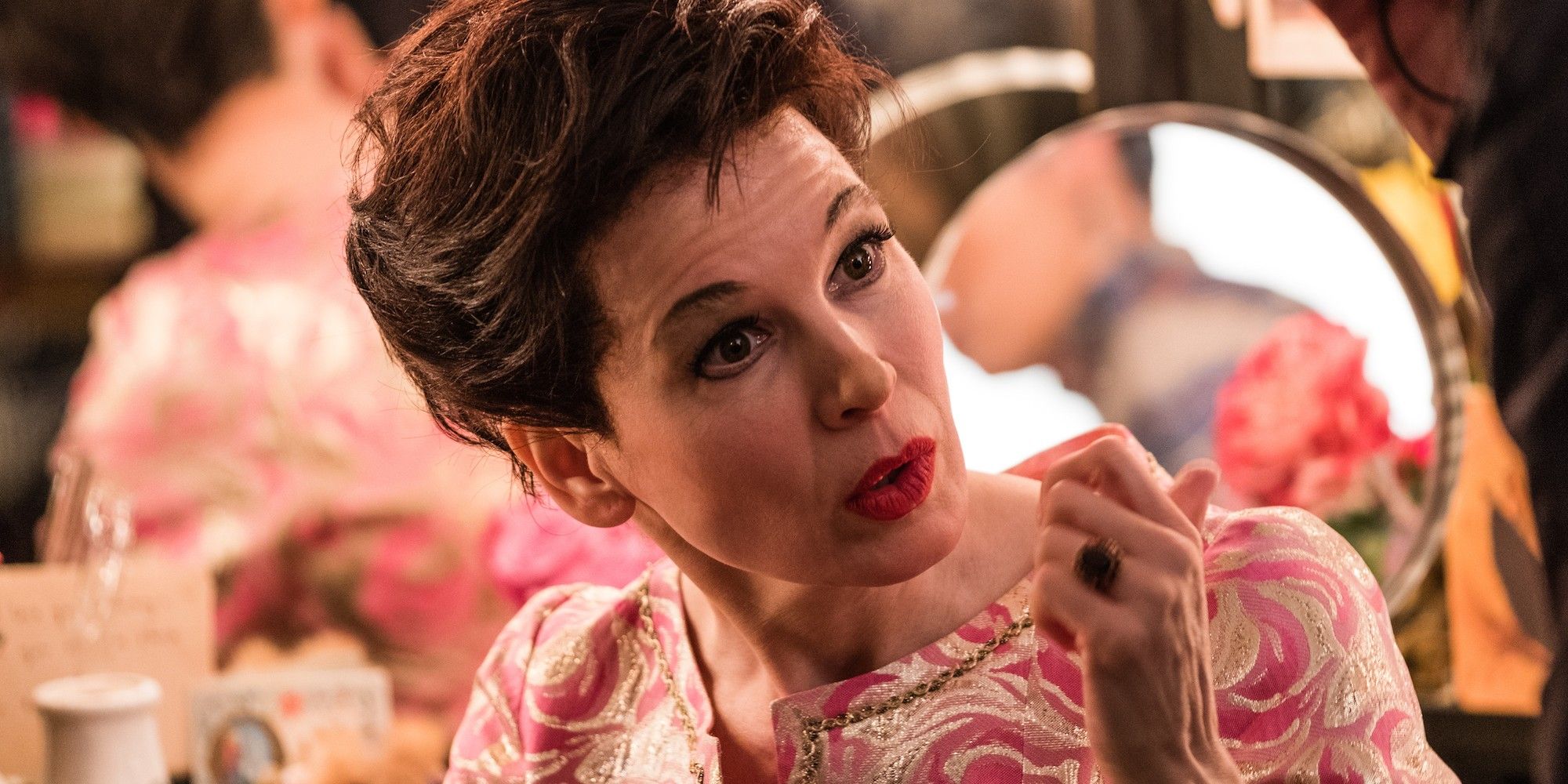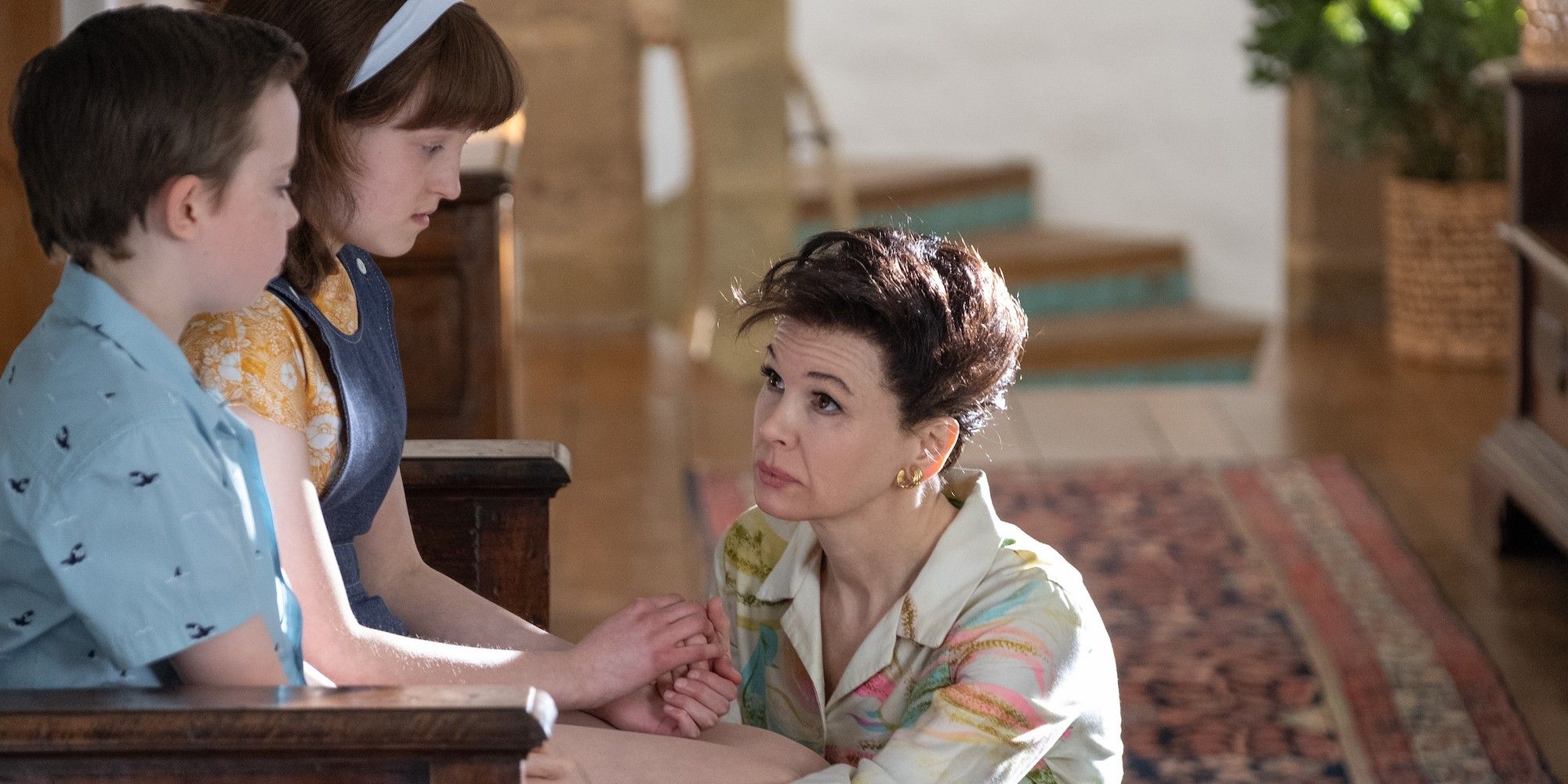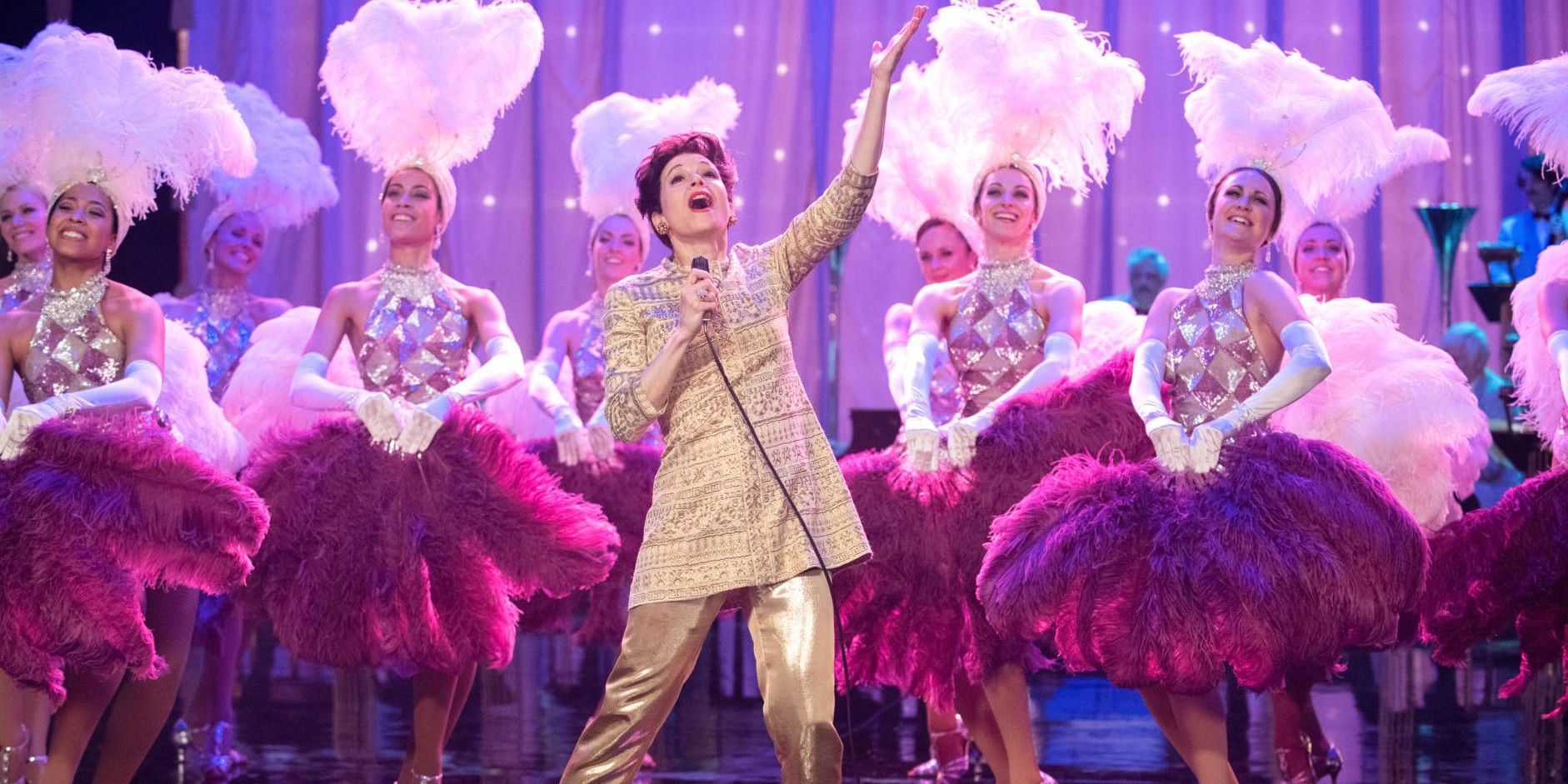
Judy, the biographical Judy Garland drama starring Renée Zellweger, opens with the perfect tone-setter; in a smooth, single-take shot (or close to one), a teenaged Judy played by Darci Shaw is shown around The Wizard of Oz set by Louis B. Mayer, the Harvey Weinstein-esque MGM mogul, who manages to flatter, insult, and seduce her with promises of superstardom all at once. It's a shame, then, the rest of the film never quite lives up to this disquieting glimpse at the real "man behind the curtain" and how he set Judy Garland down a dark path at a young age. Still, what the movie lacks for inventiveness, it makes up for with compassion and, of course, music. Zellweger is successful enough in evoking Garland with her singing to elevate Judy, despite its struggles to break new ground for Hollywood memoirs.
The film picks up in late 1968, as Zellweger's Judy faces piling debts and a custody fight with one of her ex-husbands, Sidney Luft (Rufus Sewell). In an effort to provide for their children (Bella Ramsey and Lewin Lloyd) and prove herself a fit mother, Judy signs up for a five-week run of sold out concerts at London's Talk of the Town. Along the way, she gets caught up in a whirlwind love affair with charismatic entrepreneur Mickey Deans (Finn Wittrock), butts heads with her provided assistant Rosalyn Wilder (Jessie Buckley) and pianist Burt (Royce Pierreson), and even spends time with some of her adoring fans. But just as life starts to finally work in her favor again, Judy's personal demons threaten to destroy it all.

Adapted from Peter Quilter's play End of the Rainbow, the Judy script by Tom Edge (The Crown) plays down the fantastic elements of its source material in order to hew closer to the truth. Obviously, liberties are taken (especially when it comes to the timeline of events), but the film is otherwise fairly authentic in its depiction of Garland's tumultuous personal life. The dream-like flashbacks to Judy's childhood are especially powerful, revealing how her shiny childhood was a facade devised by MGM for PR, and portraying Mayer as a controlling abuser who got her addicted to pills and shaped her future relationships with men. These scenes (which include an allusion to Mayer's sexual misconduct, as detailed in Garland's unpublished memoir) thankfully avoid coming off as exploitive, and instead paint Judy's diva behavior as an adult in a sympathetic and more complicated light.
Unfortunately, beyond that, Judy doesn't have a lot to say about the dark side of show business that previous biographies haven't said just as clearly, and with far more panache. Its narrative is less paint by numbers than other recent actor and/or singer biopics, but the film is a bit thin on plot overall, and doesn't dig deeply enough into Judy's relationships with those around her to make up the difference. In theory, by zeroing in on a small period of her life, Judy should have been able to focus more on who Garland as a person. In motion, though, it still winds up being more interested in her legacy than anything else. This is perhaps best illustrated by a well-intentioned subplot that alludes to her status as an icon among gay men. It's a kind gesture that nevertheless comes off as wish fulfillment more than a believable addition to the story - especially during the ending.

Where Judy truly comes alive are the scenes when Garland takes the stage at the Talk of the Town. As expressive as Zellweger's acting is (too much so at times), it's the moments where she's belting out tunes that her performance comes off the least like a celebrity impression through method acting (but an impression all the same), and really captures the vibrancy of a clearly fading, but still living legend. These are the same sequences where the direction by Rupert Goold (True Story) and cinematography by Ole Bratt Birkeland (The Little Stranger) become the most dynamic and lively, contrasting the drabber visuals of Garland's off-stage existence. It's no secret that Zellweger can sing thanks to her work in Chicago, but she really steps things up a notch here, allowing her to leave her mark on a number of Garland's most famous show-stoppers (including, obviously, that one).
In the end, Judy falls into the same trap as other musical biographies and tries too hard to encapsulate its subject's legacy, at the expense of its qualities as a character study. Zellweger's performance has a similar issue; it's most natural when she's not trying to imitate Garland, but rather channels her spirit through (literally) her own voice. And though Zellweger always kinda seemed destined to garner awards season traction for the film (the Academy does love movies about people who made movies, after all), her singing alone is worthy of some recognition. Judy itself is similarly a respectable biography in spite of its flaws, and offers a poignant reminder about the tragic truths that were hidden behind that gleaming rainbow.
Judy is now playing in select U.S. theaters. It is 118 minutes long and is rated PG-13 for substance abuse, thematic content, some strong language, and smoking.
from ScreenRant - Feed https://ift.tt/2mmaI8S


0 Comments